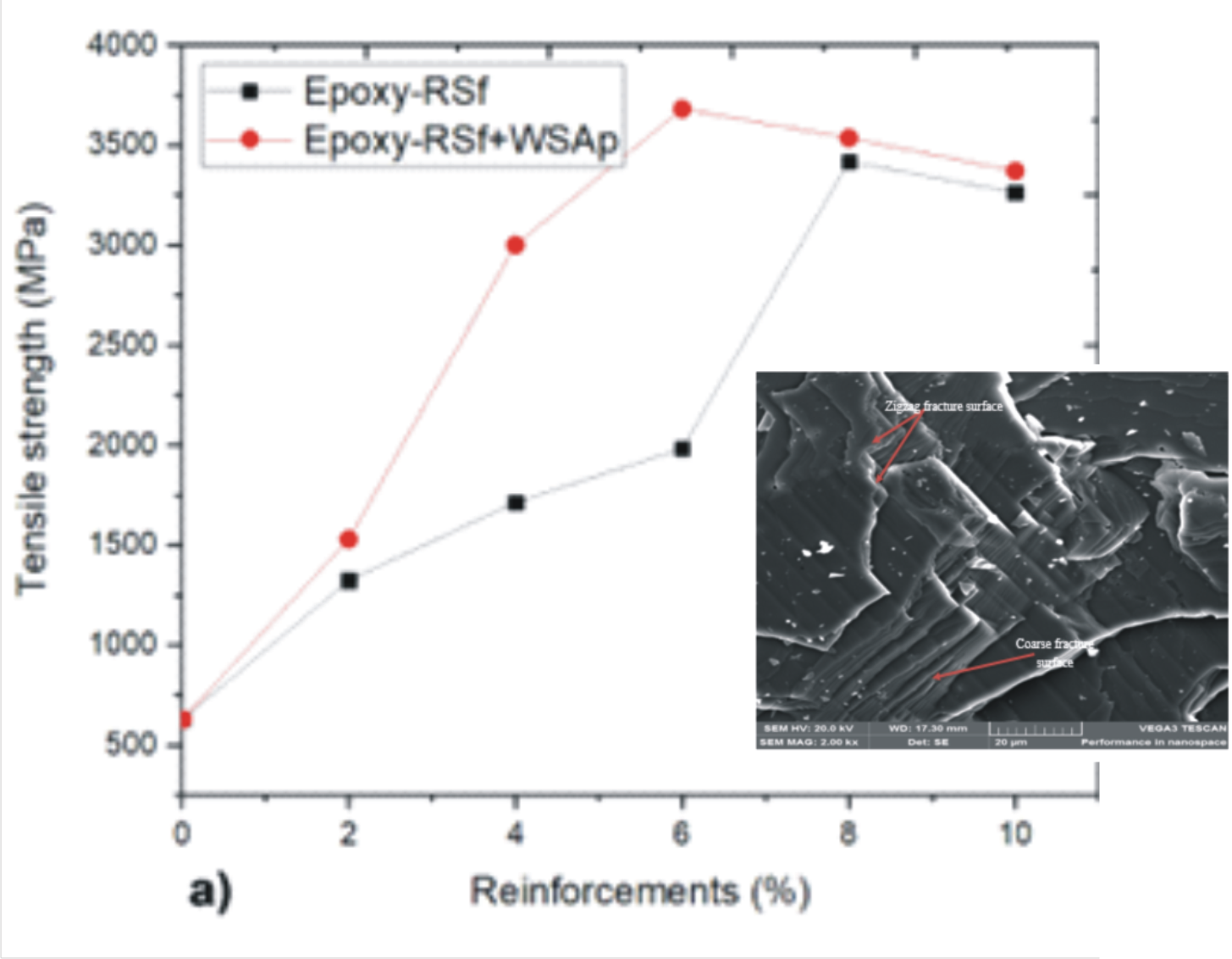Effects of rice straw fibre and walnut shell ash particulates on the mechanical behavior of epoxy composite
Keywords:
Composite, epoxy resin, rice straw, walnut shell ash particulate, tensile and impact strength.Abstract
This work studied the effects of rice straw fibre and walnut shell ash particulates on the tensile and impact behaviours of epoxy composites. Conventional hand-lay-up techniques in five different weight proportions (i.e 2 wt.%, 4wt.%, 6wt.%, 8wt.% and 10wt.%) were used to reinforce the epoxy composites. The rice straw fibres were used to reinforce the epoxy composite separately, while rice straw fibres combined with walnut shell ash particulates at an equal ratio were also used to reinforce the composites. The composites were tested in tension (according to ASTM D3039) and impact (according to ASTM D256). Both stiffness and strength were positively affected by reinforcement of the epoxy composites with rice straw fibre and walnut shell ash particulate. Amongst the different weight proportions, 6wt% of hybrid composite (rice straw fibre and walnut shell ash particulate) gave the highest tensile strength and damage tolerance. These developed epoxy biocomposites with high tensile strength and toughness, made with agricultural waste reinforcers, could be a sustainable, affordable, and environmentally friendly alternative material for automotive, structural and defense applications.


